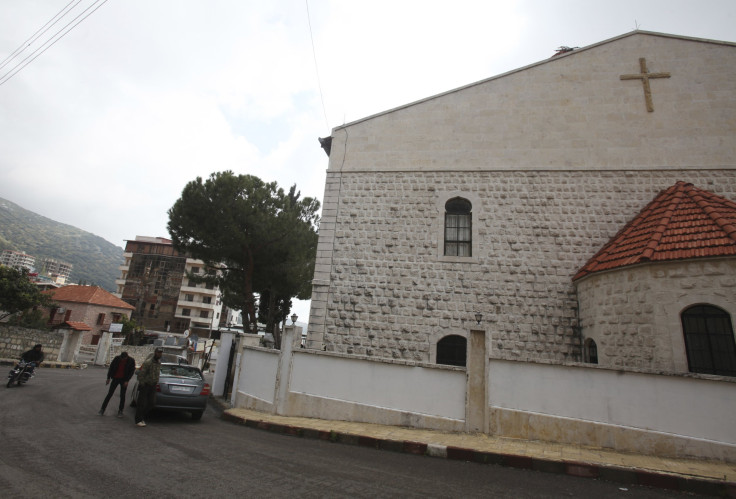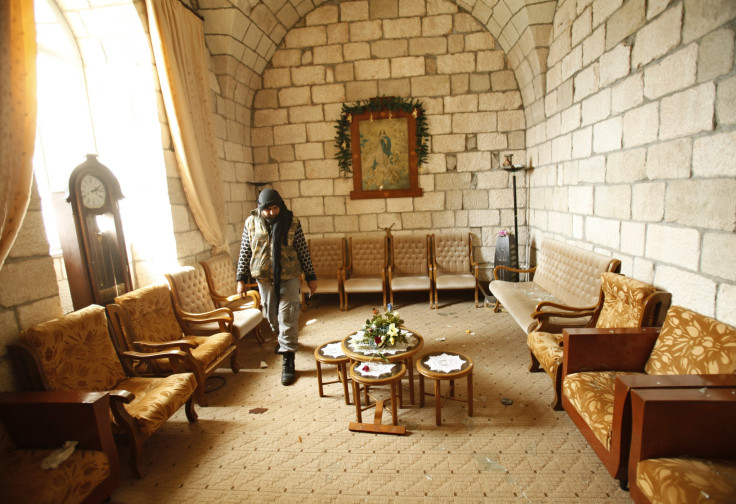On The Eve Of 99th Anniversary Of The Armenian Genocide, There's Worry Over Fate Of Armenians In Syria

As Armenians prepare to commemorate the 99th anniversary of the Armenian genocide on April 24, Armenian communities worldwide are concerned about the fate of their brethren in Syria.
According to several reports, Armenians -- who are Christians -- are fleeing en masse from the town of Kesab, in northwest Syria, to escape advancing Islamist rebel forces.
On March 28, Islamist rebels and extremist groups linked to Al-Qaeda overtook the Syrian government-controlled town, which is located close to the Turkish border. The town is home to one of the oldest Christian Armenian communities in the Middle East.
The incident was the latest in a series of battles along Syria’s entire northern border between Syrian President Bashar Al-Assad's forces and rebel groups. Kesab, in the province of Latakia, was the northernmost town controlled by Assad’s forces.
In the aftermath, many of the 2,500 Armenian Christians living in Kesab fled to the nearby port city of Latakia, which is still under government control. Reports vary on the exact number of refugees and the overall damage. Some reports claim that more than half, if not all, Armenians have fled Kesab. Other reports say that several churches were destroyed and that at least 80 people were killed. Fear of Islamist forces alone could have prompted many to flee, as some religious minorities in Muslim-majority Syria have been attacked by rebel forces, which often include radical Islamists.

“For Armenian Americans, current images of Armenian homes being looted and occupied in Kesab, and innocent lives tragically lost, invoke painful memories of the early phases of the first genocide of the 20th century at the hands of Ottoman Turks," Bryan Ardouny, the executive director of the Armenian Assembly of America, a nonpartisan advocacy organization, said in a statement on the organization's website.
Armenians, scholars and many governments say that Ottoman Turks committed genocide, displacing hundreds of thousands and killing more than one million Armenians in the period before, during and after WWI, peaking in 1915. Turkey has denied that it systematically killed Armenians, and it maintains the deaths were casualties of war. In the wake of the genocide, many Armenians fled to Middle Eastern countries, including nearby Syria.
“What transpired in Kesab was a dramatic reminder of the Armenian Genocide when entire communities where displaced overnight,” Ardouny said in an emailed statement. “In 2014, a year shy of the centennial of the 1915 Armenian Genocide, extremism has re-emerged with a direct assault upon an entirely peaceful Armenian town.
In the wake of the events in Kesab, the U.S. State Department said the U.S. is “deeply troubled.”
“All civilians, as well as their places of worship, must be protected,” Marie Harf, the deputy spokesperson said. “As we have said throughout this conflict, we deplore continued threats against Christians and other minorities in Syria.”
© Copyright IBTimes 2024. All rights reserved.






















